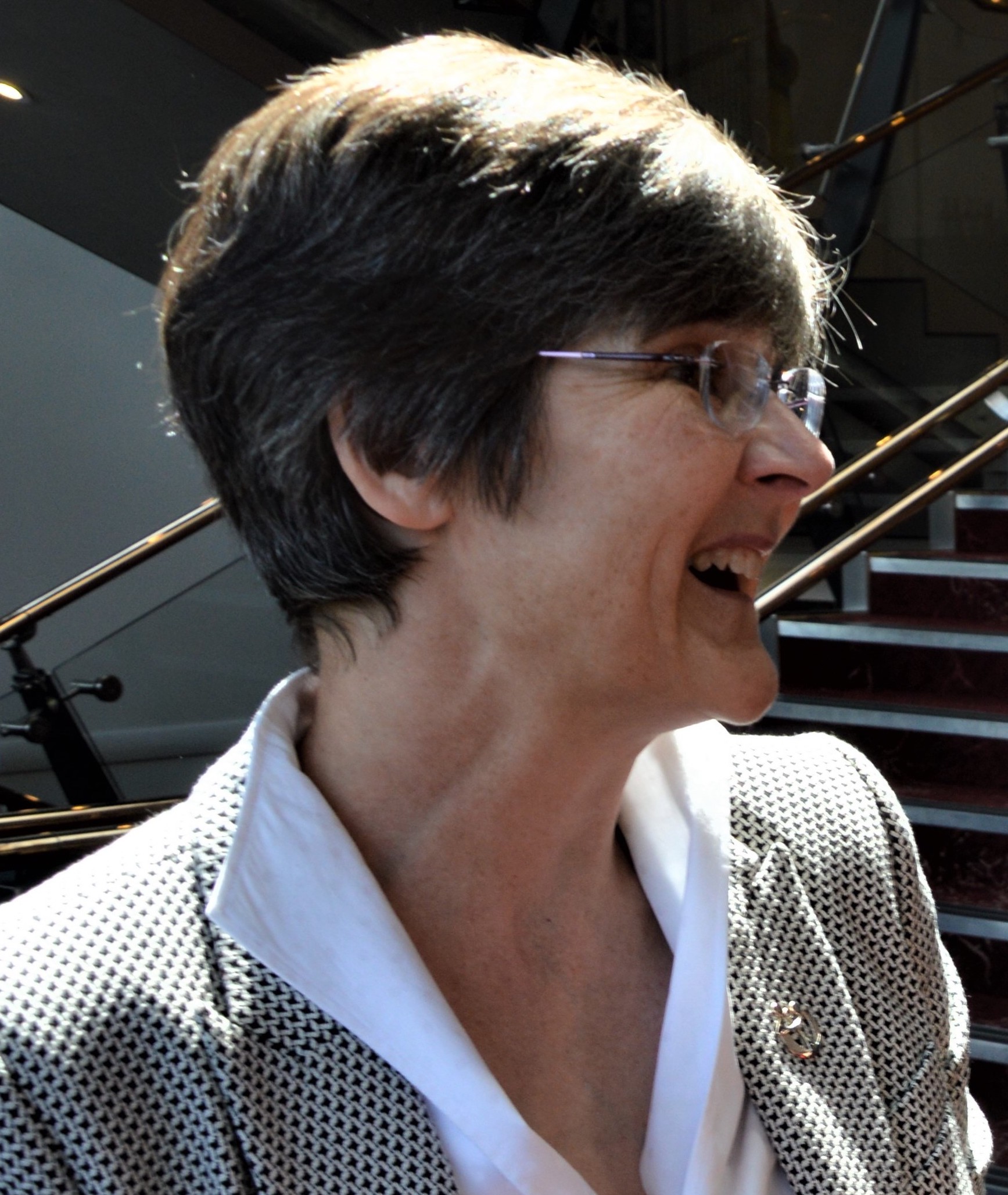SciTS 2022 Featured Speakers and Panelists

Margaret Palmer
|
Margaret Palmer is a Distinguished University Professor at the University of Maryland, College Park, and director of the National Socio-Environmental Synthesis Center (SESYNC). With a background in hydrology and ecology, Palmer has contributed to testing and extending fundamental theory in marine and stream ecosystems on the interactions between organisms, boundary layer flows and geomorphic processes. Her research has focused on coastal and freshwater ecosystems with an emphasis on restoration of rivers, streams, and wetlands. She is an international leader in restoration ecology, has over 150 peer-reviewed articles and co-edited Foundations of Restoration Ecology, a widely used text that is in its second edition. Palmer is also known for her work at the interface of science and policy, having served as a technical advisor and as an innovator that helps build solution-focused teams to solve problems that have social, legal, policy, and scientific aspects. As the Director of SESYNC, Palmer oversees collaborative, cross-disciplinary research groups that work to identify data-driven solutions to society’s most challenging and complex environmental problems and ultimately inform decision makers. Palmer is also known for her work at the interface of water science and policy, having served as a technical advisor and innovator to help build solution-focused teams that solve problems with social, legal, policy and scientific aspects. Her awards include AAAS Fellow, Aldo Leopold Leadership Fellow, Ecological Society of America (ESA) Fellow, Lilly Fellow, the Society of Freshwater Science (SFS) Award of Excellence, the ESA Sustainability Science Award, SFS Fellow, and the Ruth Patrick Award from the American Society of Limnology and Oceanography. Palmer has a B.S. in biology from Emory University and completed her M.S. and Ph.D. in coastal oceanography at the University of South Carolina with a focus on hydrodynamics and dispersal of benthic organisms.
|

Catherine Lyall
|
Catherine Lyall is Professor of Science and Public Policy at the University of Edinburgh where she holds a position in the School of Social and Political Science. She began her working life with a degree in chemistry and, before joining the university, worked for the UK civil service and held posts with the Royal Society of Edinburgh and the Royal Society of Chemistry. Her career at Edinburgh has progressed from part-time Research Officer to Full Professor via numerous research contracts within grant-funded research centres and including service as Head of the Science, Technology and Innovation Studies Group and as Associate Dean for Research Careers.
She brought this experience to bear in her book Being an Interdisciplinary Academic. How Institutions Shape University Careers. Based on a series of career history interviews with British academics and their institutional leaders, this book highlights some of the enduring challenges faced by researchers attempting to embed interdisciplinarity in their own career trajectory and seeks to encourage greater dialogue on how we can collectively address incongruities within the governance of interdisciplinarity.
Professor Lyall is an experienced science policy researcher and evaluator of knowledge exchange and interdisciplinary research activities who has acted as a consultant to a number of public bodies including the UK Economic and Social Research Council (ESRC), Scottish Funding Council, and the European Commission. She has recently served on the steering group that reviewed the ESRC’s support for PhD studentship funding and is currently completing a learning review (with Dr Isabel Fletcher) for the Scottish Government’s programme to detect new variants of SARS-CoV-2 in wastewater.
She was Co-Investigator on an EU-funded project, Shaping Interdisciplinary Practices in Europe, SHAPE-ID (Horizon 2020 grant agreement No. 822705), tasked with addressing the challenge of improving interdisciplinary cooperation between the Arts, Humanities and Social Sciences (AHSS) and STEM (Sciences, Technology, Engineering and Mathematics) and other disciplines. Professor Lyall led the team that developed the SHAPE-ID toolkit and recommendations to guide European policy makers, funders, Universities and researchers in achieving successful pathways to interdisciplinary integration between and among AHSS and other disciplines.
|

Staša Milojević
|
Staša Milojević is an Associate Professor of Informatics in the Luddy School of Informatics, Computing, and Engineering, the director of Center for Complex Networks and Systems Research (CNetS), a Grant Thornton Scholar, a core faculty of Cognitive Science program, and a fellow of Rob Kling Center for Social Informatics at Indiana University, Bloomington. Her work covers a range of topics within the "science of science": dynamics of research teams, collaborative networks, formation and evolution of scientific fields, and research metrics. She is particularly interested in understanding how dramatic changes in knowledge production, exemplified by a shift towards “team science”, interdisciplinarity, and increased pressures on productivity impact the dynamics of scientific workforce and on the overall pace of science. Her work has been published in a wide range of journals – from the top specialized venues for informatics/scientometrics (Journal of Informetrics, Scientometrics, Quantitative Science Studies), to the top physics journal (Physical Review Letters, Nature Reviews Physics), to general science journals (Science, PNAS, Scientific Reports). She is a co-founder and past chair of the Association for information Science and Technology (ASIS&T) Special Interest Group for the measurement of information production and use - SIG METRICS. She serves on the editorial boards of Scientometrics, BioScience, and Journal of Altmetrics. She is an Associate Editor for the Quantitative Science Studies and Frontiers in Research Metrics and Analytics. She received a PhD in Information Studies from the University of California, Los Angeles, her Master of Library and Information Science, Kent State University, and her Bachelor of Arts in English Language and Literature, University of Belgrade, Serbia.
|

Laurie R. Weingart
|
Laurie R. Weingart is the Richard M. and Margaret S. Cyert Professor of Organizational Behavior and Theory at the Tepper School of Business, Carnegie Mellon University. She served as CMU’s Interim Provost and Chief Academic Officer, and as Senior Associate Dean – Education and Director of the Accelerate Leadership Center within the Tepper School. Coauthor of The No Club: Putting a Stop to Women’s Dead-End Work, her research examines collaboration, conflict, and negotiation, with a focus on how differences across people both help and hinder effective problem solving and innovation. Prof. Weingart has published over 70 articles and book chapters in the fields of management, social psychology, industrial psychology, cognitive psychology, and economics. An elected Fellow of the Academy of Management and recipient of the Joseph E. McGrath Award for Lifetime Achievement in the Study of Groups, Dr. Weingart served as President of the International Association for Conflict Management, founding President of the Interdisciplinary Network for Group Research, and as co-editor of the Academy of Management Annals. Dr. Weingart earned her Ph.D. in Organizational Behavior from the Kellogg School of Management at Northwestern University.
|
|




